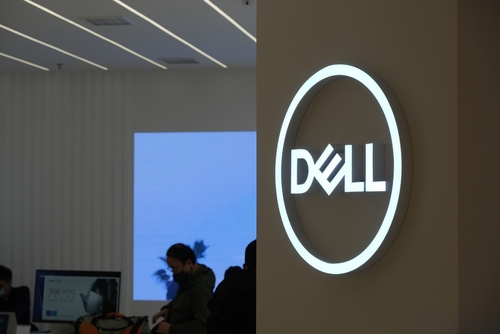
Dell Technologies (NYSE: DELL) may not seem like the most exciting stock in the world. Many investors probably know Dell from a laptop they own or use at work, and it may seem like the furthest thing from an exciting artificial intelligence (AI) stock.
However, Dell also has a division within its company that builds data center servers, which have seen a massive boost in demand as the AI arms race continues. With another competitor potentially struggling in this realm, does it open the door for Dell to take a significant lead in this space?
Dell could be gaining more business soon
One of the biggest names in the server infrastructure space is Super Micro Computer (NASDAQ: SMCI), which has had some problems. On the company side, it has been accused of accounting issues, which triggered a Department of Justice probe and caused its auditor to resign after raising concerns. The company has hired a new auditor, but the damage to the stock has already been done, and investors who wanted to invest in the infrastructure side of AI may have already committed to investing in Dell.
Furthermore, Supermicro is reportedly having issues delivering products as well. According to UDN, a Chinese media company, Elon Musk's xAI start-up has shifted all of its server orders from Supermicro to Dell. While there is no hard proof of this, it also aligns with other stories. According to Digitimes, Nvidia is moving orders of its new Blackwell chips away from Supermicro.
These struggles from an industry leader could allow Dell to gain more market share, which could make it a viable AI investment.
Dell has two primary divisions
Dell is really a tale of two companies rather than a pure play on the server infrastructure business like Supermicro is. We've already talked about how its Infrastructure Solutions Group (ISG) is already benefiting from some AI orders but could see even more demand if it takes market share from Supermicro. Dell also has its Client Solutions Group (CSG), which provides the laptops and computers that investors are more likely to know.
ISG is doing fantastically, with revenue rising 38% in the second quarter of fiscal 2025 (ended Aug. 2). Within ISG are two segments: servers and networking and storage. Storage didn't do so great, with revenue falling 5% year over year. However, servers and networking rose 80%, which shows how strong the demand for AI-related computing is today.
CSG, which struggled over the past few years because a lot of laptop and desktop spending was pulled forward to 2020 and 2021 as people optimized their work-from-home setup, is still struggling with revenue falling 4% year over year.
These two divisions make up a fairly even amount of revenue for the company, which is why total revenue only rose 9% year over year. However, this may not always be true if its ISG continues to produce outsized growth. This would be a huge boost in profits, as it is far more profitable than the CSG division.
| Division | Q2 Revenue | Q2 Operating Income | Q2 Operating Margin |
|---|---|---|---|
| Infrastructure Solutions Group (in billions) | $11.6 | $1.28 | 11% |
| Client Solutions Group (in billions) | $12.4 | $767 | 6.2% |
Data source: Dell.
Dell's ISG division is projected to continue growing, which is huge news. But is it enough to make it a top AI stock pick? At first glance, Dell's stock looks super cheap at 17 times forward earnings.
DELL PE Ratio (Forward) data by YCharts
Investors may be tempted to go all-in because the S&P 500 trades for 24.6 times forward earnings. However, there's a reason why Dell's stock trades this cheaply. Over the long term, these tech commodity plays tend to be highly cyclical and have seldom produced long-term market-beating results. As a result, they trade at a discount to their peers.
However, this time may be different, as there is a secular tailwind driving massive growth in its ISG sector. Still, with the laptop and desktop businesses struggling at best, I think investors can do better when looking for an AI stock, as there are many attractively priced businesses out there benefiting from the AI tailwind.
* The content presented above, whether from a third party or not, is considered as general advice only. This article should not be construed as containing investment advice, investment recommendations, an offer of or solicitation for any transactions in financial instruments.



